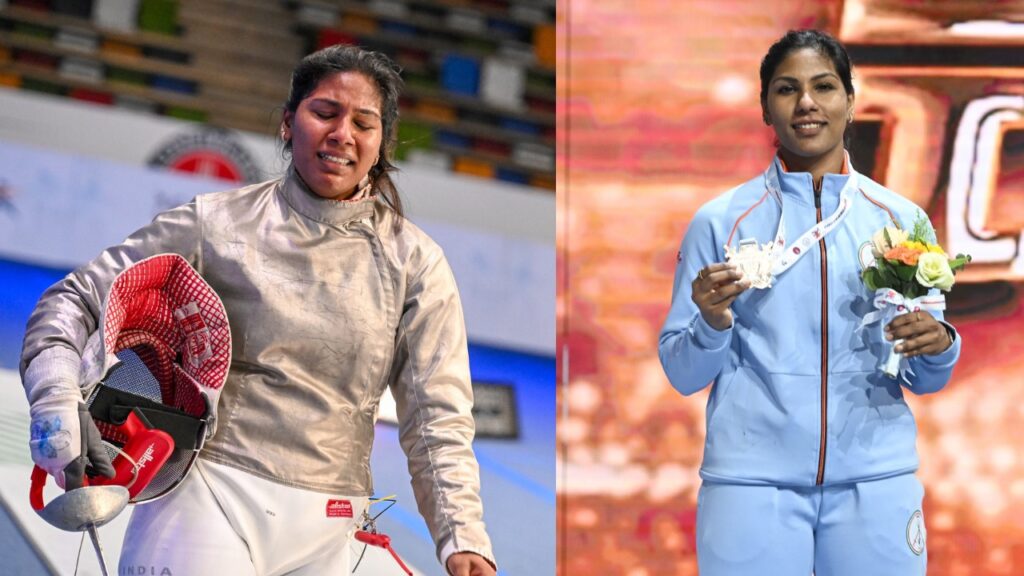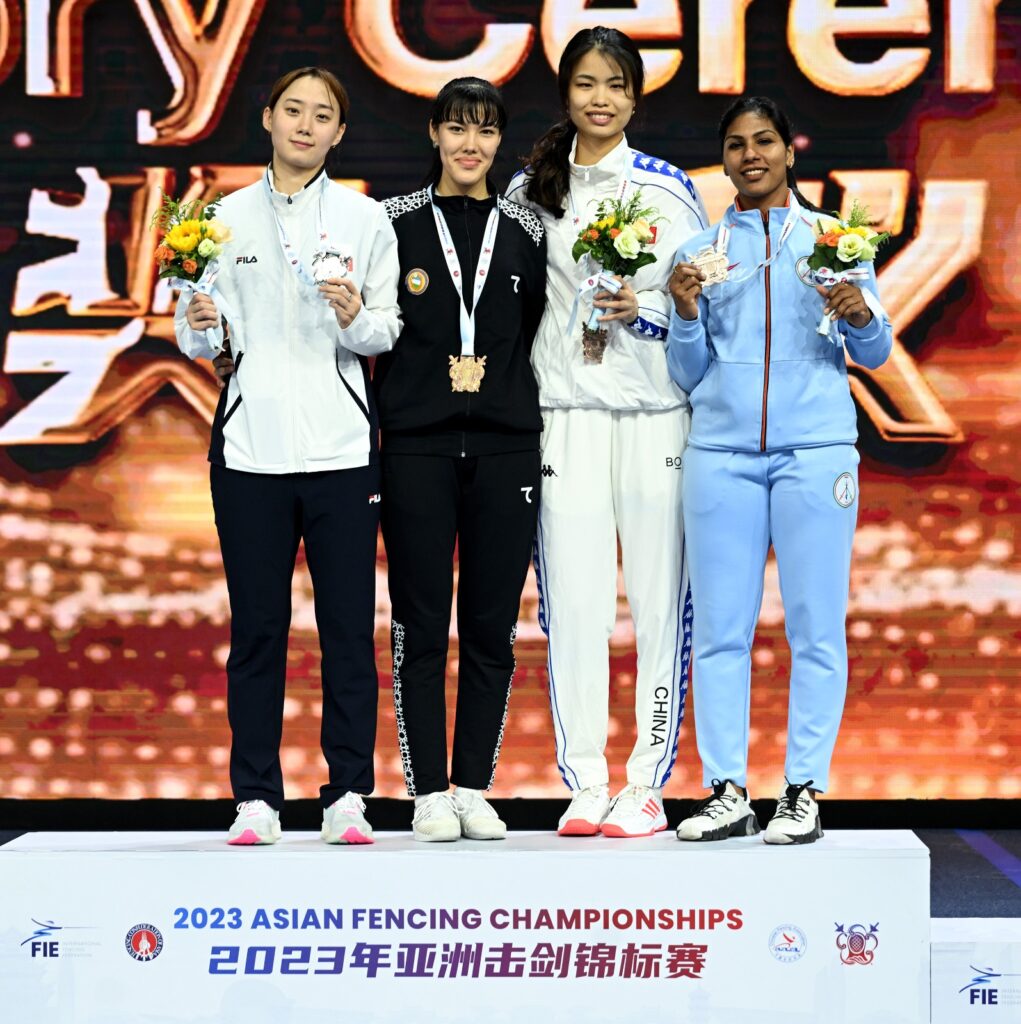
A RevSportz Exclusive
She made history by winning a bronze in the Senior Asian Fencing Championships in China, beating Misaki Emura of Japan, the world’s premier fencer – whom she had lost to in the last Asian Championships – en route. And despite making history, Bhavani Devi isn’t really satisfied. She wanted to go one step further and was unhappy when the referee rejected her appeal for a video referral in the semi-final with the scores tied 14-14 and the match in the balance. The red card against her meant she would go down 14-15 to Zainab Dayibekova, her Uzbek opponent, and have to settle for bronze – something she hasn’t really digested yet, but which will push her to do better going forward.
Here’s Bhavani Devi in an exclusive conversation with Boria Majumdar on the bronze-medal win and the way forward for her, going into Paris 2024.
Boria: Firstly, many congratulations on the win. It is well and truly a historic medal for India. With China, Japan, Korea all competing, for an Indian to make the podium was unthinkable a few years earlier. Tell me about the win, and what did you do different against Emura in the quarter-final?
Bhavani: Thank you very much for your support. Yes, it is a very important medal for me personally and for India. Being the first medal, it will always have a very special place. For us in India to be on the podium at the Asian level, with China, Korea and Japan fielding their best fencers, is always tough. We play more to improve our rankings and the podium is always a dream. To be able to make the podium and win the medal makes all the effort worth it.
Coming to the quarterfinal, I knew that Emura would be a difficult opponent to beat. I had lost to her in the last Asian Championships and told my coach that though I lost, there were moments in the match when I felt I could get the better of her. I had understood what she was trying to do and what strategy she was employing. And here as well, I beat another Japanese fencer in the pre-quarters and that helped. Most Japanese fencers use similar strategies and though Emura is a much better fencer, I had an idea what she was likely to do.
It worked well for me and even when she managed to nullify my lead – I was leading 8-2 at one point – I wasn’t flustered. The score became 10-10, and I just continued following my instinct and it worked. It was the biggest victory of my career, and it meant I was in the semi-final and had confirmed a medal. In fact, soon after the win, I felt there was still one match that I needed to win to get the medal. But when I realised I had done it, I have to say I was thrilled and emotional at the same time.
Boria: The semi-final too was very close and had it not been for a debateable call from the referee you could have made the final.
Bhavani: Yes, and I have not really come to terms with it. If you see, even when I was standing on the podium, I wasn’t fully happy. It was a tough match, and I had done well. We hadn’t faced each other before, and each one us had been shown a yellow card. And I can tell you, I am confident we both moved at the same time during the final point and moved early. However, the referee said only I moved and showed me a red card. I appealed, and asked him to check the video to see if both of us had moved or not. He rejected the appeal, and this is something I need to discuss with my coach, for I don’t know if an appeal can be rejected like this.
Boria: It will motivate you to go even better in future is what I feel. The World Championships are coming up in Milan a month from now and then we have the Asian Games and finally Paris. The Olympic qualification process is also on. There is plenty to look forward to.
Bhavani: Yes, soon we have the World Championships in Milan in July. Before that, I will continue to train in France. What this medal does is it vindicates my training. That we are on the right track. I want to do well in the Asian Games, and then qualify as quickly as possible for Paris so that I don’t have pressure on myself and can start preparing for the Olympics in a relaxed frame of mind. So it is a very important few months coming up for me.
Boria: Finally, tell me about support. Deepthi (Deepthi Bopaiah), for example, had mentioned you to me five years back, and I have seen you mature as an athlete. Go Sports has been supporting you from early on in your career, and now the Prime Minister takes personal interest in sport. That should help as I am sure the TOPS scheme makes a big difference.
Bhavani: Go Sports has been hugely important for me in my career. Not only have they supported me financially, they have also been there at times when I have needed emotional support, needed a word of encouragement. That’s as important as financial support for an athlete. And the government is doing a lot to help us. The TOPS developmental scheme supports a lot of junior fencers as well, and each one is now focussed on realising the Olympic dream. When the Prime Minister interacts with you directly on social media, it gives you a lot of confidence. For athletes, that’s important. The government of Tamil Nadu has also been with me, so in terms of support I have had the best possible. More than when you win, you need support when things aren’t going the best for you. That’s what makes the maximum difference to an athlete. In India, we have started to do this for athletes across sports.




